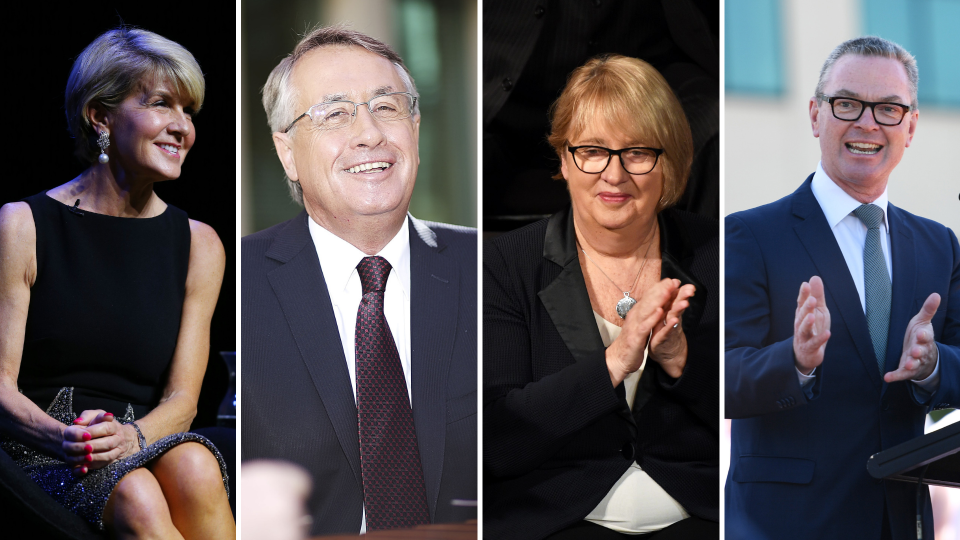Taxpayers to foot $1 billion bill to cover retiring politicians’ entitlements

A spectacular leadership spill and an upcoming election have seen scores of politicians on both sides of politics depart the arena, but not without picking up generous benefit payments on their way out, analysis of government reports reveals.
High-profile Coalition ministers including Christopher Pyne, Nigel Scullion, Kelly O’Dwyer and Julie Bishop have all announced plans to retire, with Pyne, Scullion and Bishop set to receive between $188,000 and $220,000 a year as part of their benefits package.
Retiring Labor MPs Wayne Swan and Jenny Macklin will also be eligible, as will another 25 politicians who haven’t announced plans to retire, including Tony Abbott and Tanya Plibersek.
That’s well above the average $40,000 received a year by a retiree with superannuation, and the generous pay packet is thanks to a government loophole.
The original scheme, which allows these politicians to claim the six-figure payments, was set up in 1948 and abolished in 2004.
However, politicians elected prior to 2004 can continue to claim the amounts.
These politicians, provided they’ve served more than 18 years in parliament are also entitled to 75 per cent of an MP’s benchmark salary – at least $122,902.50 a year.
But when added to their pension entitlement, the whole package is capped at the equivalent of 75 per cent of their highest salary earned.
All up, taxpayers are still footing a bill of nearly $1 billion to cover retiring MPs entitlements.
According to the Department of Finance’s report ‘Taxpayers face bill of up to $1b to fund MPs’ retirements’, the scheme cost taxpayers $902.5 million in 2017, before hitting $908.0 million in 2018, and $912.9 million in 2019.
However as the number of retiring politicians elected prior to 2004 wanes, so too will the amount paid.
The Department of Finance projects that by 2057, the accrued liability will be a much smaller $119.6 million. But taxpayers will still be paying for politicians’ retirements under the new scheme.
The findings come as Australians grapple with anaemic wage growth and increasing costs of living.
And according to Roy Morgan polling, nearly half a million Australians want to retire by the end of 2019 but paltry super amounts pose a major barrier.
The Association of Superannuation Funds of Australia puts the amount needed to retire comfortably at $545,000 for a single Australian and $640,000 for a couple.
“Superannuation, through its tax concessions and compulsory nature, has been the main vehicle for trying to achieve this and is having some success but is still falling well short of funding the retirement of those currently intending to retire,” Roy Morgan industry communications director Norman Morris said.
“The average level of savings and superannuation for those intending to retire in the next 12 months is well below what is required to be able to lead what ASFA describes as a comfortable lifestyle.
“This will put more pressure on government funding for some time yet.”
Make your money work with Yahoo Finance’s daily newsletter. Sign up here and stay on top of the latest money, property and tech news.
Now read: Would you like to access your pay as you earn it? Here’s how.
Now read: Opera House contractor wins job back after drinking too much at work function

 Yahoo Finance
Yahoo Finance 
